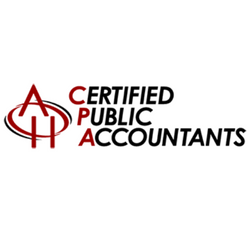
4 Effective Ways To Prepare Your Business Accounts for BIR Audits in the Philippines
As a business owner in the Philippines, it is wise to ensure that your company’s accounts are always ready for audits throughout the year. It is good practice to consistently keep your accounts organized and up-to-date to avoid any inconvenience during audits performed by the Bureau of Internal Revenue (BIR).
From diligently updating your records to tackling changes from the last BIR audit, here are a few ways to keep your business audit-ready throughout the year.
#1: Keep Good Track of Your Finances
Keeping track of your finances will help you save a significant amount of time and effort when getting ready for audits. It also enables you to make sure that you are aware of the transactions happening within your business.
The following are ways you can do to ensure that you are always on top of your accounts:
- Organize and store your receipts properly. There are two kinds of receipts you should be aware of when tracking your finances: (a) Paper Receipts and (b) Digital Receipts. It is best to store paper receipts in binders or filing cabinets. For the latter, it is wise to use applications to organize and keep your receipts, such as FreshBooks App.
- Make a Spreadsheet to record your transactions. Recording your receipts is also an efficient way to keep track of your transactions. This will help you find certain receipts easier rather than going through your filing cabinet. You can include categories such as date, purpose, and amount.
Organizing and staying on top of your transactions will make it easier for you to prepare certain documents you will need during your audit.
#2: Reconcile Your Accounts Regularly
Reconciliation is an accounting process that compares two different sets of records to ensure that both figures are correct and in agreement. Regularly reconciling your accounts can help you confirm that your accounts in your general ledger are accurate and complete.
It is wise to conduct reconciliation regularly, such as quarterly or monthly, to ensure all of your accounts are accurate and consistent. By doing so, the chances of encountering reconciliation issues during your company’s audit will be significantly reduced.
#3: Tackle Potential Problems Early
Business operations can be tricky as you may not oversee every transaction made by you and your employees to keep your business running smoothly.
If you encounter such problems or find an unusual transaction in your accounts, it is best to immediately resolve such matters to avoid getting flagged during an audit. This way, you will save time sifting through old documents to clarify details about a particular transaction.
It is also best to ensure that your organization is compliant with your covenants to avoid delays in your audit.
#4: Assess Organizational Changes
Your organization has likely been audited before, resulting in your company applying several changes to cater to the recommendations provided in the audit’s final report.
When you are preparing for your next audit, it is important to consider the changes your organization has made since the last audit performed. There are two changes you should consider during such time:
- Material Changes. These changes refer to investments in new projects and government grants and support given to your organization.
- Non-Financial Changes. These changes refer to the changes made in internal control systems and management accounting standards.
Covering each detail of your company’s changes will help you present a clear and accurate record and avoid the likelihood of getting flagged during your audit.
The Process of BIR Audits
The Bureau of Internal Revenue (BIR) will randomly select your organization for audit. You would have to submit your books of accounts and other documents that are deemed necessary for the audit. Here is an overview of how the BIR conducts its audits:
- Letter of Authority. Once the BIR has selected your company for audit, you will receive a Letter of Authority (LOA), which grants powers to a BIR Revenue Officer (RO) to examine and scrutinize your books of accounts and other accounting records to determine if you are complying with the correct internal revenue tax liabilities. The document will also specify which tax type shall be examined and a list of documents needed for the examination.
- Documentation and Subpoena Duces Tecum (SDT). It is wise to submit the required documents as soon as the LOA is received to avoid reaching the SDT stage, which mandatorily requires your organization to submit the specified documents within a limited time. Failure to obey the SDT will subject your organization to criminal prosecution through action with the Prosecutor’s Office.
- Preliminary Assessment Notice. After deliberation and investigation of your accounts, the BIR will send you a Preliminary Assessment Notice (PAN) containing the RO’s initial findings. Upon receipt of your PAN, you will have fifteen days to provide a Protest Letter of your arguments and discussions of your disagreements with the PAN, should there be any.
- Final Assessment Notice. If the BIR finds issues with your PAN, they will issue a Final Assessment Notice (FAN), to which you will have to reply within fifteen days to resolve the issues indicated.
During your audit, the specific BIR process will depend on the nature of your case but will generally follow this process.
Confidently Prepare Your Business Accounts
It requires a tremendous amount of effort and time to ensure that your accounts are accurate and consistent to avoid any issues during the audit. By regularly staying on top of your accounts and records, you can ensure that your company is always audit-ready.
BIR audits can be hectic and challenging. If you find the process too exhaustive, it is wise to contact tax compliance service providers to guide you in preparing your company for your next audit.
Prepare For Your Next BIR Audit With Ease
With a full suite of accounting and bookkeeping tools, AHC is determined to help your enterprise remain fully-prepared for your next BIR audit.


